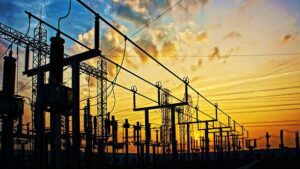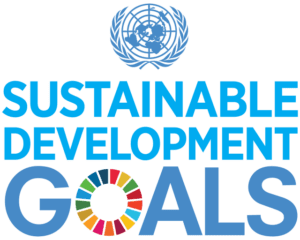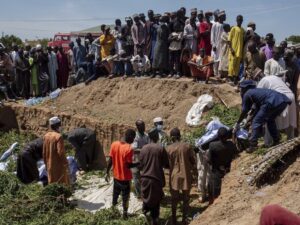
Fixing Nigeria’s embarrassing power sector crisis
As President Muhammadu Buhari prepares to exit power come May 29th next year, it has become increasingly glaring that Nigeria’s decade-old electricity crisis will persist despite his pledge to turn things around.
Though estimates of power needs for Africa’s largest economy range from 25,000MW to 40,000MW, installed generating power capacity is about 12,522MW, and transmission and distribution infrastructure can only deliver an average of 4,000MW to businesses and homes. The sector is multi-dimensionally challenged, afflicted by under-investment,outdated infrastructure, debts and inefficiencies. Power shortages have crippled SMEs, stunted productive industries and made the cost of local products uncompetitive.
According to a data from the Nigerian Electricity Regulatory Commission(NERC), the national grid collapses hit over 100 times from since Buhari took over in 2015.
2022 alone, recorded more that nine grid collapses as at December 15th. A situation power experts described as appalling and horrific.
The United States Agency for International Development said, “The Nigerian power sector experiences many broad challenges related to electricity policy enforcement, regulatory uncertainty, gas supply, transmission system constraints, and major power sector planning shortfalls that have kept the sector from reaching commercial viability.”
The country’s development aspirations are squarely constrained because electricity drives industrialization. The Electric Power Sector Reform Act 2005 and the succeeding Roadmap for Power Sector Reform 2010 set out to comprehensively transform the power industry through privatization, raise output to 40,000MW by 2020 and attract investment and the best global players into the market. Regrettably, the lofty milestones have been missed because of the age-long decay occasioned by mismanaging privatization. The Government still needs to review the post-privatization targets despite the glaring underperformance of the operators.
About 90 million Nigerians lacked access to electricity by 2019, the world’s worst, below Congo DR’s 70 million and Ethiopia’s 58 million, the World Bank added. The International Monetary Fund ( IMF) says Nigerian businesses bleed by about $29 billion annually due to power shortages.
Power liberalization, such as the Transitional Electricity Market, the Power Purchase Agreements-Gas Supply Aggregation Agreements and Gas Transportation Agreements, which would have unlocked the market’s potential, apparently did yield the desired goal as the sector is still stocked in decay.
Currently, about 70 per cent of generated power in the country comes from gas-fired turbines. The GenCos consistently complain about gas-related challenges, volume, quality, pressure and transportation that have perennially curtailed capacity utilization.
Efforts made so far by the stakeholders and the government have failed to solve the challenges to gas flow to the power plants.
Consequently, current power generation stands at about 3,800MW and the per capita electricity usage is 136 KW/h, one of the world’s lowest. In Libya, it is 4,270 KW/h; India, 616KW/h; China, 2,944KW/h; South Africa, 4,803 KW/h; and Singapore, 8,307KW/h.
To resolve the crisis, experts recommend efficient and competitive service delivery involving deploying intelligent and micro-grid technologies, distributed energy resources and energy efficiency and demand management tools, and cost-reflective tariffs. There is also the need for the automation of review processes; enhancement in data analytics; new market models; franchising; embedded generation, mini-grids, flexible and secure energy sources; and redesigned network structure comprising hybrid networks, smart grid technology, and distributed generation capabilities. Diversification from fossil fuel-fired plants to renewable resource sources offers immense potential. Here, the government should consider full-blown solar grids, especially in the Northern parts of the country; this would reduce the pressure on the National grid.
Additionally, the power sector remains in dire need of significant investment across its value chain, far from the kind of investment it is currently experiencing. Businesses’ reliance on self-generation via diesel-powered generators and solar panels has resulted in higher costs of goods and services.
Experts estimate that for the Nigerian economy to grow at 10 per cent yearly, electricity requirement must reach 78,000MW by 2030. Market intervention and fundamental reforms are vital to achieving this. Heavy investment is needed to address the insufficient gas supply due to poor gas infrastructure and obsolete transmission and distribution assets.
Also, there is a need for the sector to be managed by competent hands. Quality management is requisite to revamping the industry.
The sector needs critical financing from World institutions like the world bank, International Monetary Fund, IMF, and others will be required to vitalize the industry.
Tackling the power crisis requires a strong political will. Here, the President must take leadership of the sector. No need to sit aloft while the rot continues in the power industry. Whoever emerges as the next President of Nigeria come 2023 must champion the power sector reforms. The government should adopt a multi-prong strategy.
That is to break the stranglehold of the DisCos; promote regional, mini, and dedicated transmission and distribution grids; break the state monopoly on transmission by licensing others via a private sector-led process to significantly modify the transmission system, and promote diversification of energy sources. These should include renewables like wind, solar and water.



